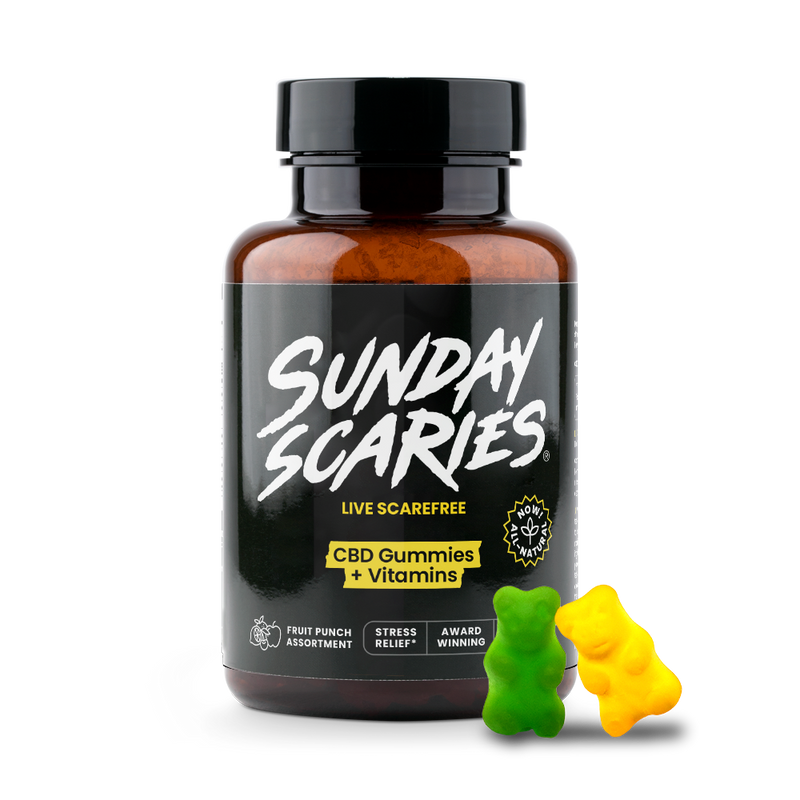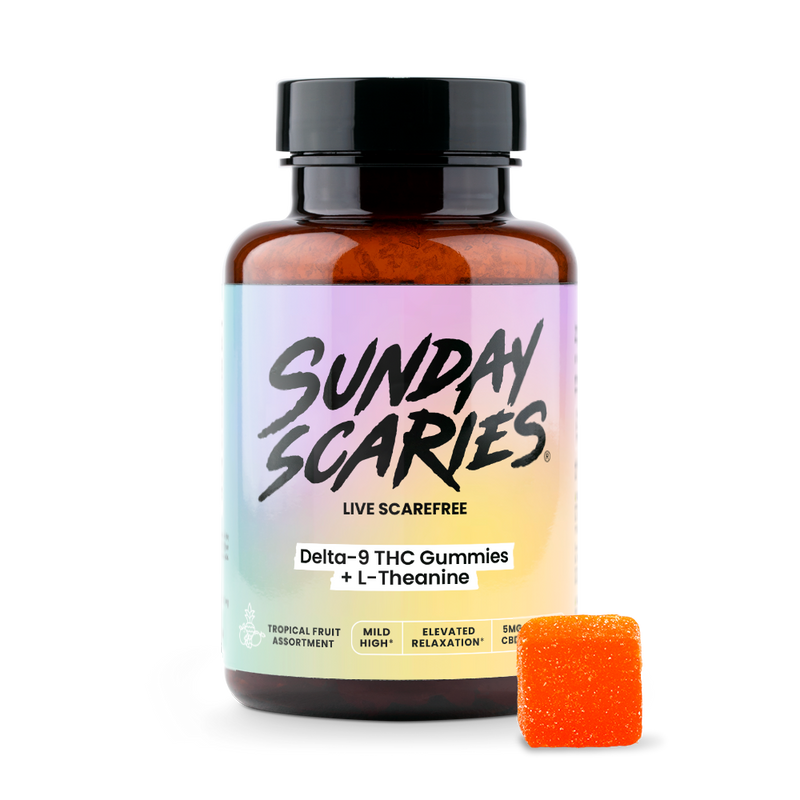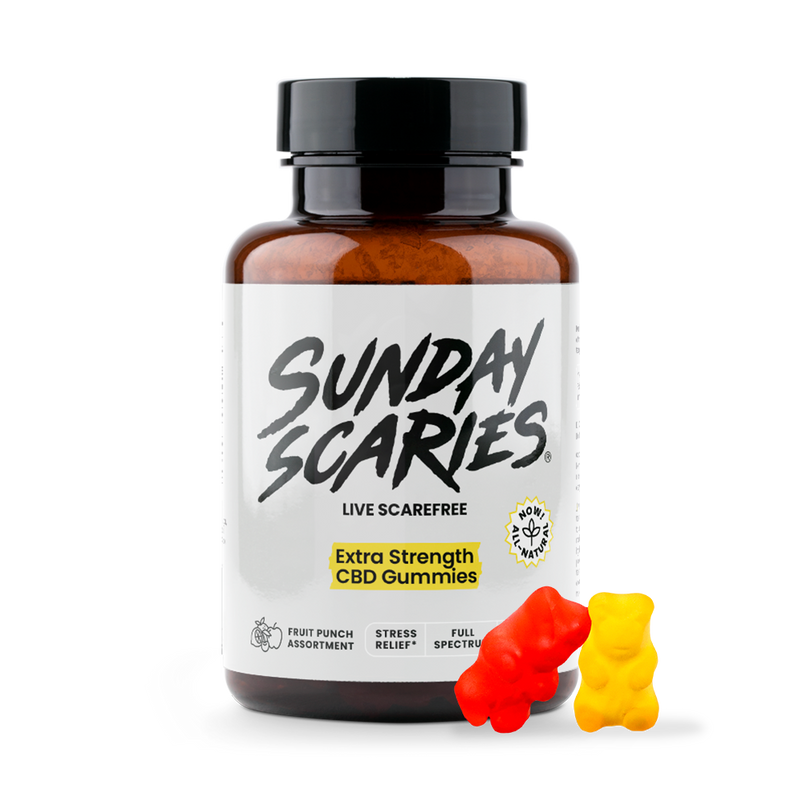
Hemp Extract vs CBD: Key Differences and Uses Explained
Choosing between hemp extract and CBD depends on individual health goals, desired effects, and product quality, considering factors like pain relief, relaxation, and legal status.
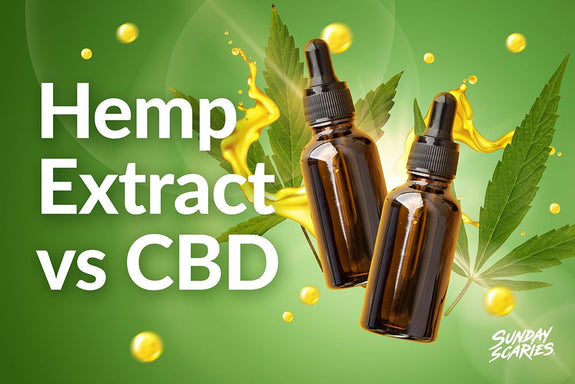
Curious to know how CBD and hemp extract are different from each other? We'll cover the most important differences, benefits, and applications. Being aware of the difference between CBD and hemp extract will enable you to make smart choices for your health.
Key Takeaways
-
Hemp extract is made using the entire hemp plant and may include trace levels of THC, especially in full-spectrum formulas, which can produce mild psychoactive effects depending on the product.
-
CBD is a naturally occurring compound found in hemp flowers, widely used to support relaxation, physical ease, and overall well-being, and it's federally legal under the 2018 Farm Bill.
-
When deciding between CBD and hemp extract, take into account your health objectives, desired impact, and quality of the product, as they both have different benefits and applications.
Understanding Hemp Extract
Hemp extract comes from the entire hemp plant, including flowers, leaves, and stalks. In contrast to its psychoactive relative, marijuana, hemp products are not psychoactive and will not provide you with a high. For this reason, hemp extract is a viable option for individuals wanting to experience the benefits of cannabis without the psychoactive effects.
Hemp extract contains a wide variety of cannabinoids and terpenes, which are responsible for its potential therapeutic effects. These work in tandem to produce what is commonly described as the "entourage effect," multiplying the total therapeutic potential of the extract.
What is Hemp Extract?
Hemp extract is a full spectrum of cannabinoids, terpenes, and other plant compounds from the whole hemp plant. It contains not only the flowers and leaves but also the stalks of the cannabis sativa plant to provide a complete profile of plant compounds. But it's important to differentiate between hemp extract and hemp seed oil. Whereas hemp extract has a range of cannabinoids, hemp seed oil, which is derived from the pressed seeds, contains very few or no cannabinoids, such as CBD.
This is a very important differentiation when selecting products. Both of the hemp seed oils are generally used in culinary preparation and topical application because of their high nutrient profiles, but they will not yield the same level of therapeutics as with hemp extract. Recognizing the difference can make you choose the best product to fit your requirement, particularly if considering hemp oil compared to alternatives.
Benefits of Hemp Extract
Hemp extract contains a wealth of essential fatty acids and essential amino acids that work to make it nutritious. These nutrients play a critical role in overall health, nourishing everything from the cardiovascular system to the skin. Hemp extract also contains anti-inflammatory compounds that may help alleviate symptoms of inflammation, including gamma linolenic acid.
Aside from its health benefits, hemp extract is often used by individuals looking to unwind or ease everyday stress and discomfort. Its therapeutic benefits can include strengthening the immune system and relief from a variety of ailments, including stress, body aches, and even sleep issues.
Adding hemp oils and hemp extract to your regimen could provide a dietary supplement that contributes to overall health.
Common Uses of Hemp Extract
Hemp extract ends up in a wide range of products, ranging from food supplements to cosmetics. Hemp seed oil, for example, is widely used in food items such as snack bars, breads, and yogurts because of its nutritional content. It is also a healthy dietary supplement, and it is widely taken in salads, yogurt, cereals, smoothies, and baked foods that can contain hemp seeds and olive oil.
In addition to its dietary uses, hemp extract is popular in the skincare industry. Applying hemp seed oil to the skin may offer soothing comfort for tired joints and support overall skin nourishment. With its array of applications, hemp extract offers versatile benefits that can easily be integrated into daily life.
Understanding CBD
Whereas hemp extract contains a wide variety of cannabinoids, CBD (cannabidiol) is one particular psychoactive cannabinoid present in the cannabis plant, famous for being non-psychoactive. CBD may be produced using different means of extraction, such as liquid solvent extraction, food-grade oil extraction, and CO2 extraction, so that the resultant product is free and strong.
Hemp plants are also specifically famous for having higher CBD levels than cannabis plants within the cannabis plant genus. This gives hemp-based CBD a high level of popularity with those who wish to enjoy cannabis without the effects of being "high."
What is CBD?
Cannabidiol, or CBD, is the major active compound of CBD oil, which is an extract of hemp cannabidiol combined with a carrier oil. Unlike another popular cannabinoid, THC, CBD has no psychoactive action, i.e., it will not induce a 'high'. It is chiefly extracted from the cannabis sativa plant flowers, and its oil extracts CBD together with other cannabinoids and substances from leaves, stalks, and flowers. To describe CBD oil and cannabis oil, one must consider their unique properties and benefits.
There are different types of CBD extracts available, including full-spectrum, broad-spectrum, and CBD isolate. These are defined by their cannabinoid profiles and extraction methods. Full- and broad-spectrum CBD oils may interact with specific receptors, such as CB1 and CB2, which play a critical role in the body’s endocannabinoid system.
Benefits of CBD
CBD oil is renowned for its numerous health benefits. Many people use CBD oil as part of their wellness routine to promote a sense of calm, uplift their mood, and support focus, sleep, and everyday balance.
Apart from its psychological advantage, CBD oil is often used to soothe the body and support joint and skin comfort, thanks to its naturally calming properties. Its neuroprotective capacity and regulation of functions such as sleep, mood, appetite, and sense of pain are additional indicators of its therapeutic potential.
How is CBD used?
CBD can be used in different ways, providing users with options that suit their taste. Some common methods of use are sublingual drops, capsules, edibles, and topicals. With such versatility, users can add CBD to their regimen in the most convenient way for their lives.
Whether you prefer the convenience of capsules, the enjoyment of CBD gummies and other edibles, or the targeted relief of topicals, there is a CBD product to meet your needs. This versatility makes it easy to find a method of consumption that aligns with your wellness goals and preferences.
Comparing Hemp Extract and CBD
It is essential to know the differences between hemp extract and CBD to ensure that one can make decisions based on their knowledge. Both are from the cannabis plant but differ in composition, legality, and effectiveness, particularly in comparing hemp oil with CBD.
Composition Differences
Hemp extract comes from the whole hemp plant, including the stalks, leaves, and flowers. This extraction process differs from other parts of cannabis. CBD oil will have more cannabinoids like CBC, CBN, and other cannabinoids, whereas hemp seed oil extracted has very few cannabinoids and is full of fatty acids, proteins, and vitamins.
In addition, hemp has virtually no THC, normally less than 0.3%, differentiating it from marijuana, which has a possible content of up to 30% THC. Such low content of THC is the primary consideration of legality and usage of hemp products derived, which are mostly demanded due to their low THC attributes.
Legal and Regulatory Differences
Under the 2018 Farm Bill, hemp-derived CBD products with less than 0.3% THC are generally considered legal. Any hemp-derived product, including CBD, must have THC levels below 0.3% to remain compliant with legal standards.
Understanding these regulations helps ensure that you choose hemp products that are both safe and legal.
Effectiveness and Uses
CBD has been reported to improve mood and reduce discomfort. Many users report achieving targeted pain relief using a topical gel or foam.. Both hemp extract and hemp oil and CBD offer a range of health benefits, from boosting the immune system to supporting cardiovascular health.
However, individual preferences and health goals will determine which product is more suitable for you.
How to Choose Between Hemp Extract and CBD
Choosing between hemp extract and CBD depends on various factors, including your health goals, product quality, and personal preferences.
Understanding these elements can help you make an informed decision.
Factors to Consider
Desired effects, such as pain relief or relaxation, should guide the choice between hemp extract and hemp oil or CBD. Personal wellness goals, like promoting relaxation or physical comfort, can help guide the choice between hemp extract and CBD. Additionally, the method of consumption can greatly influence the effectiveness and convenience of these products.
Specific health conditions may influence the effectiveness of hemp extract versus CBD. Personal preferences regarding taste or product form can also affect the decision.
Product Quality and Sourcing
Consumers should look for quality indicators and certificates of analysis when choosing hemp oil products. Check the label to distinguish between hemp seed oil and CBD oil. Hemp seed oil lists ‘cannabis sativa seed oil’; CBD oil lists ‘cannabidiol’ or ‘hemp extracts’.
Ensuring that the extraction process methods used do not involve harmful solvents is also crucial.
Personal Preferences and Goals
Personal health goals play an essential role in choosing between hemp extract and CBD, as each may offer different benefits depending on the individual’s needs. Understanding your individual health goals helps in deciding whether the overall benefits of hemp extract or the specific effects of CBD align better with your wellness objectives.
Potential Side Effects and Risks
While both hemp extract and CBD are generally considered safe, it’s important to be aware of potential side effects and how to mitigate risks.
Side Effects of Hemp Extract
Common side effects reported from hemp extract include digestive issues. Potential side effects can include rare and minor issues such as stomach aches or diarrhea. However, these side effects are generally mild and infrequent.
Side Effects of CBD
Common side effects of CBD include drowsiness, changes in appetite, and diarrhea. The risk of serious side effects from CBD use is quite low for most people.
The advised daily safe dose of full-spectrum CBD oil and CBD, based on research, is up to 1,500 mg, although this high amount is mostly reserved for medical patients, and most everyday users find positive effects in the 10 - 25mg range.
Risk Mitigation
Consulting with healthcare professionals before starting any hemp or CBD product is advisable to ensure safety and appropriate usage. Higher doses of CBD can result in increased risks of digestive issues, indicating the need for moderation and careful dosing.
Summary
In summary, both hemp extract and CBD offer unique benefits and uses, catering to different health goals and preferences. Understanding their composition, legal status, and potential effects can help you make an informed decision. By considering factors such as hemp oil and CBD product quality and personal health goals, you can choose the product that best fits your needs.
Whether you’re seeking nutritional benefits, therapeutic relief, or overall wellness, hemp extract and CBD have something to offer. With this knowledge, you can confidently explore these natural remedies and find the right fit for your lifestyle.
Frequently Asked Questions
What is the difference between hemp extract and CBD oil?
Essentially, hemp extract encompasses the whole hemp plant and includes various cannabinoids and terpenes, while CBD oil specifically focuses on cannabidiol extracted from the cannabis plant. So, if you're after a wider spectrum of plant compounds, hemp extract is the way to go!
Can hemp extract or CBD oil make you high?
Hemp extract and CBD oil typically contain only trace amounts of THC (less than 0.3%), which means they are unlikely to produce any psychoactive effects.
What are some common uses of hemp seed oil?
Hemp seed oil is great for enhancing your diet with snacks, breads, and yogurts since it's packed with nutrients. Plus, it works wonders in skincare, with some users reporting pain relief for sore joints and healthier skin.
Are there any side effects of using CBD oil?
Yes, using CBD oil can lead to side effects like drowsiness, changes in appetite, and digestive issues such as diarrhea. The good news is that serious side effects are rare, especially when taken in moderation.
How do I choose between hemp extract and CBD oil?
Choose hemp extract if you want a full-spectrum product with a range of cannabinoids, including trace THC; choose CBD oil (specifically broad-spectrum or isolate) if you want to avoid THC altogether. Your choice depends on your sensitivity to THC and desired effects.

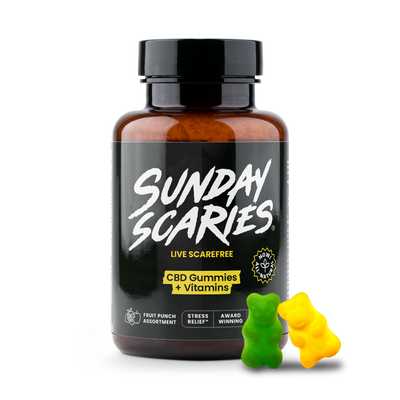 CBD Gummies
Stress Relief
CBD Gummies
Stress Relief
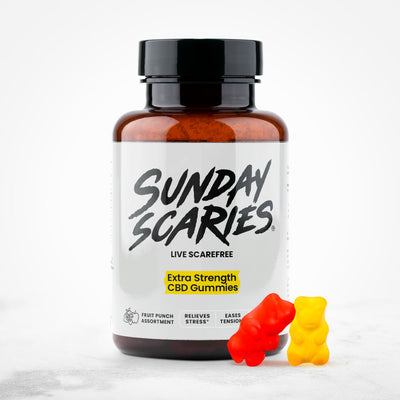 Extra Strength CBD Gummies
Stress Relief
Extra Strength CBD Gummies
Stress Relief
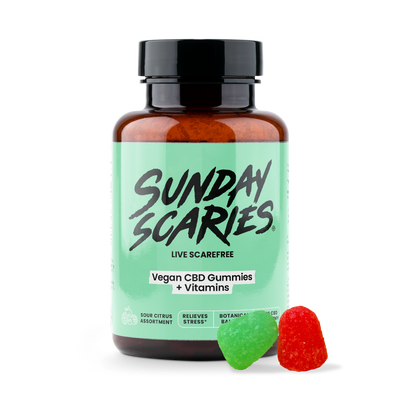 Vegan CBD Gummies
Stress Relief
Vegan CBD Gummies
Stress Relief
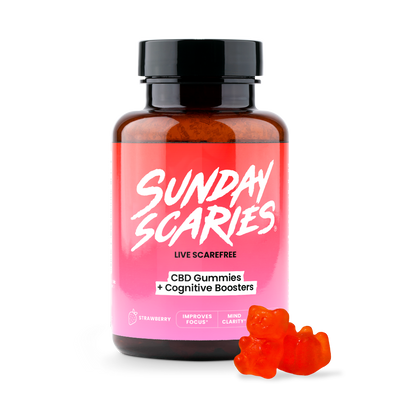 CBD Gummies for Focus
Focus Boost
CBD Gummies for Focus
Focus Boost
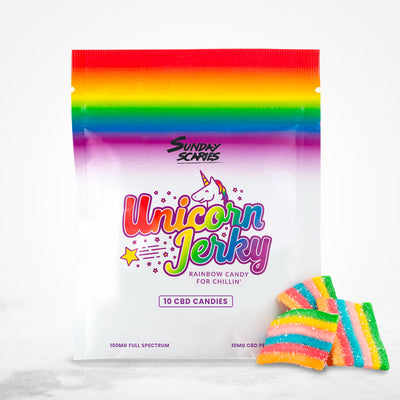 CBD Candy
Mood Lift
CBD Candy
Mood Lift
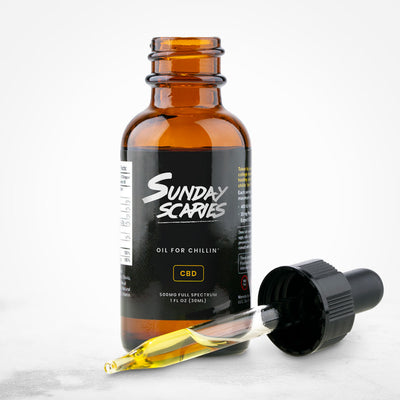 CBD Daytime Oil
Stress Relief
CBD Daytime Oil
Stress Relief
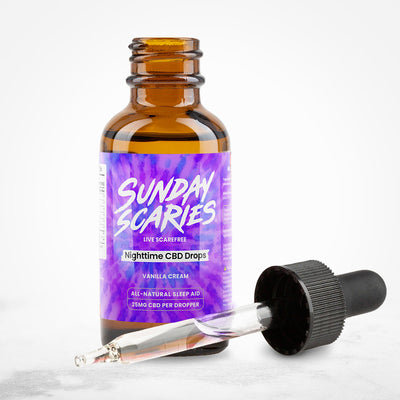 CBD Sleep Oil
Sleep Aid
CBD Sleep Oil
Sleep Aid
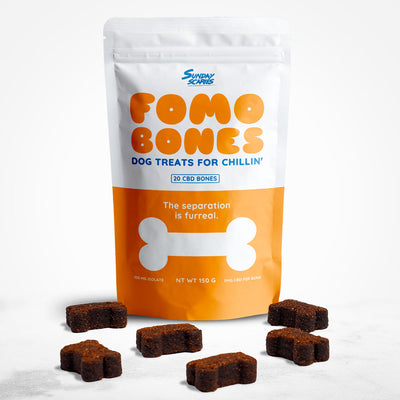 CBD Dog Treats
Stress Relief
CBD Dog Treats
Stress Relief
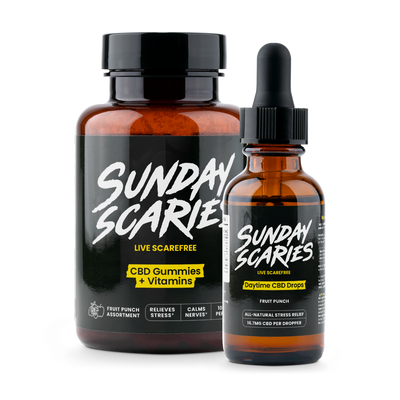 Side Piece Bundle
Stress Relief
Side Piece Bundle
Stress Relief
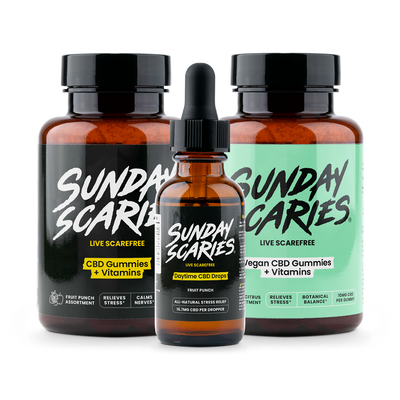 Rando Bundle
Stress Relief
Rando Bundle
Stress Relief
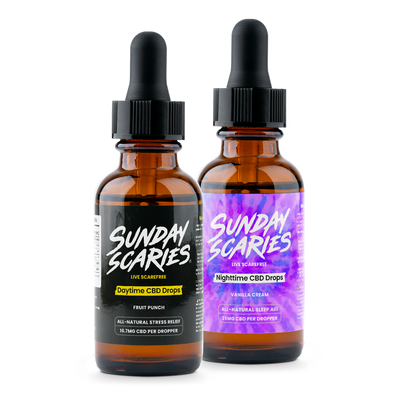 Sunrise & Sunset CBD Oil Bundle
Stress Relief
Sunrise & Sunset CBD Oil Bundle
Stress Relief
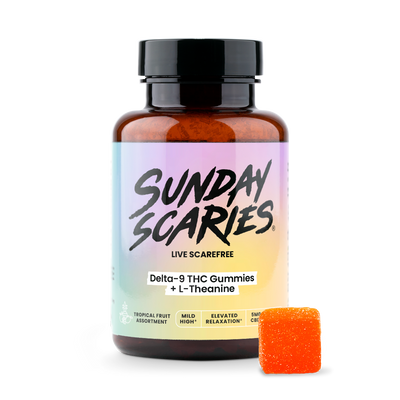 5mg Delta-9 Gummies
Euphoria
5mg Delta-9 Gummies
Euphoria
 10mg Delta-9 Gummies
Euphoria
10mg Delta-9 Gummies
Euphoria
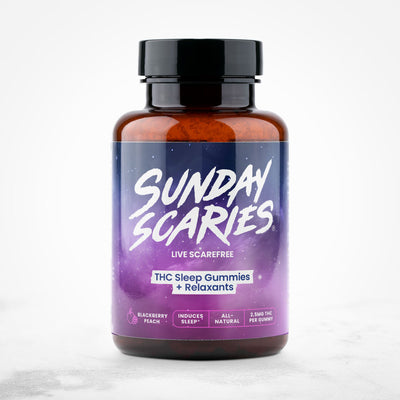 THC Gummies for Sleep
Sleep Aid
THC Gummies for Sleep
Sleep Aid
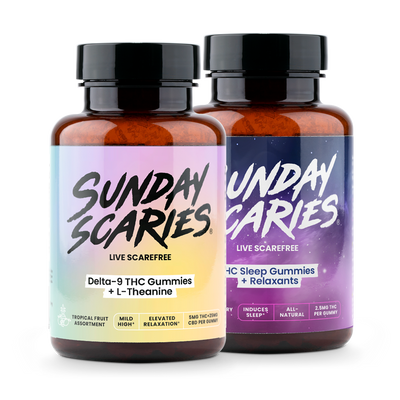 Day & Night THC Gummies Bundle
Stress Relief
Day & Night THC Gummies Bundle
Stress Relief
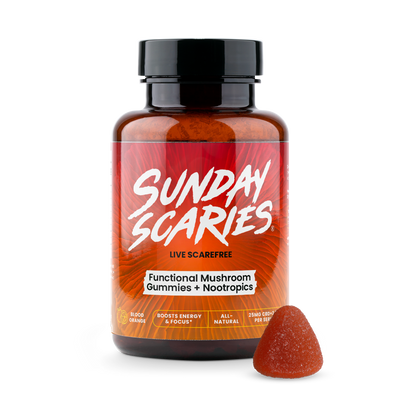 Mushroom Gummies
Focus Boost
Mushroom Gummies
Focus Boost
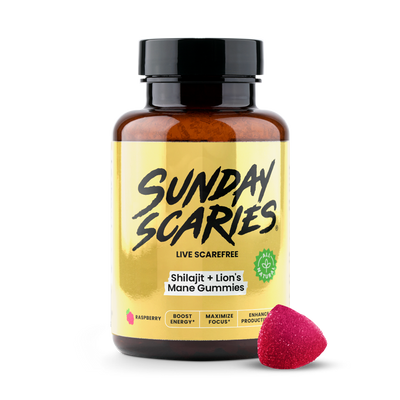 Shilajit Gummies
Focus Boost
Shilajit Gummies
Focus Boost
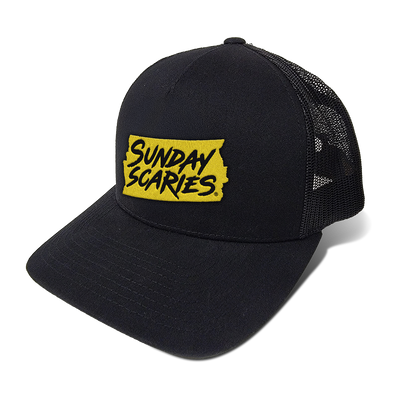 Sunday Scaries Hat
Sunday Scaries Hat
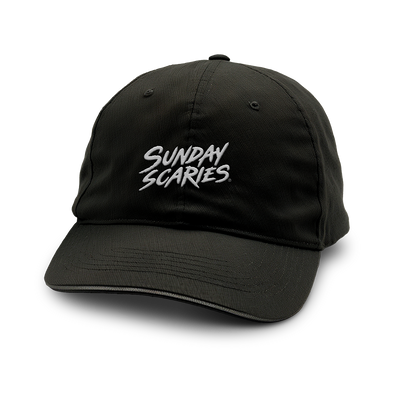 Sunday Scaries Dad Hat
Sunday Scaries Dad Hat
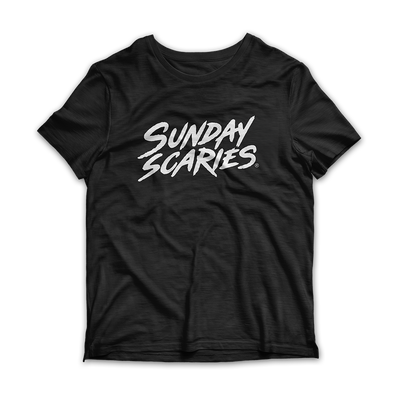 Sunday Scaries T-Shirt
Sunday Scaries T-Shirt
 Sunday Scaries Pocket Tee
Sunday Scaries Pocket Tee
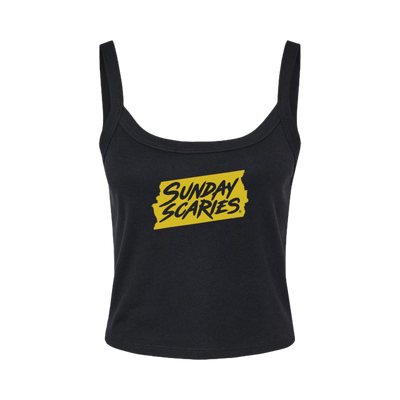 Sunday Scaries Tank Top
Sunday Scaries Tank Top
 Sunday Scaries Sweatshirt
Sunday Scaries Sweatshirt
 Sunday Scaries Blanket Jacket
Sunday Scaries Blanket Jacket
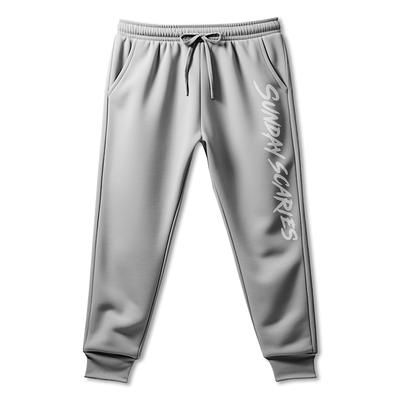 Sunday Scaries Sweatpants
Sunday Scaries Sweatpants

